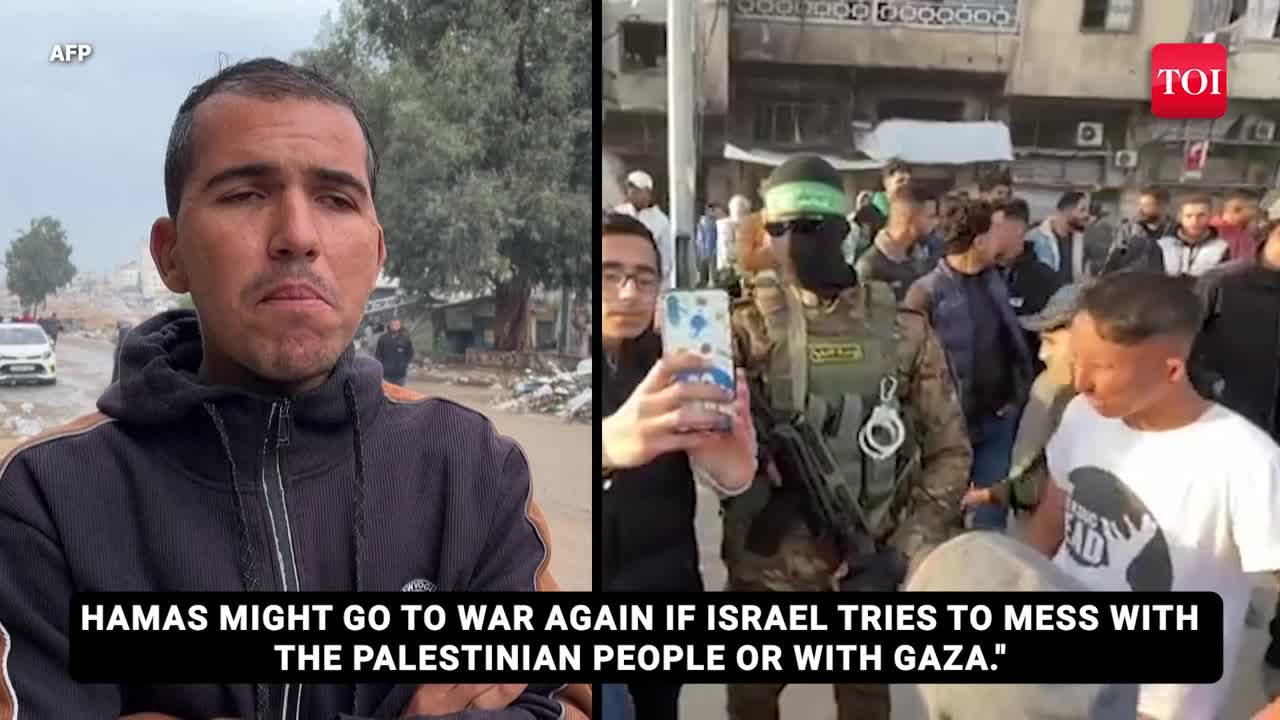 |
|
The recent escalation of tensions between Gaza and Israel highlights a deeply entrenched conflict with a long and complex history. The postponement of a scheduled hostage release, announced by Hamas, has ignited a volatile situation, with Palestinians in Gaza issuing stark warnings of impending renewed warfare. This action underscores the fragility of any potential agreements and the deep mistrust that permeates the relationship between the two sides. The accusations of Israeli violations of agreements, a recurring theme in this ongoing conflict, further exacerbate the situation, highlighting the cyclical nature of violence and the persistent obstacles to a lasting peace. The statement from Gaza that they are 'used to Israel violating agreements' reflects a profound sense of disillusionment and a lack of faith in the negotiating process, suggesting that past experiences have shaped their current expectations and responses.
The Israeli perspective is likely to frame the situation differently. They may point to their own security concerns and the inherent threats posed by Hamas, potentially justifying their actions as necessary measures for self-defense. The possession of hostages by Hamas, undeniably a serious and provocative act, provides leverage and creates a dangerous dynamic where any perceived transgression by Israel could lead to immediate and potentially violent consequences. The international community finds itself in a precarious position, attempting to mediate and de-escalate the situation while grappling with the complex realities on the ground. The uneven power dynamic and the deeply rooted historical grievances make it exceptionally challenging to find common ground and establish a sustainable peace process.
Moving forward, several critical factors will determine the trajectory of this conflict. The immediate response of Israel to the Gaza warnings will be pivotal. A measured and conciliatory response could potentially de-escalate the situation, whereas a forceful or retaliatory action could rapidly escalate tensions, leading to widespread violence. International involvement, particularly from influential actors who can exert pressure on both sides, will be crucial. Mediation efforts that focus on building trust, addressing underlying grievances, and creating mechanisms for resolving disputes peacefully will be vital for achieving a lasting resolution. Ultimately, the path towards lasting peace requires addressing the root causes of the conflict, including the ongoing occupation, the blockade of Gaza, and the unresolved status of Palestinian statehood. The lack of progress on these fundamental issues makes the prospect of lasting peace extremely challenging, and the current cycle of violence demonstrates the precarious nature of the region and the immediate need for sustained international diplomatic efforts.
Furthermore, the broader geopolitical context must be considered. Regional alliances and rivalries inevitably influence events in Gaza and Israel. External actors may have interests that contribute to the instability in the region, creating added complexities for any potential peace-building initiatives. The economic conditions in Gaza also play a significant role. The blockade has created severe economic hardship, contributing to widespread poverty, unemployment, and a sense of hopelessness amongst the population. These difficult socio-economic conditions can exacerbate existing tensions and make it more likely that violence will erupt. Addressing the economic challenges in Gaza is crucial not only for improving the living standards of the people but also for fostering stability and reducing the likelihood of conflict.
Therefore, a comprehensive solution requires a multi-faceted approach that simultaneously addresses the security concerns of Israel, the humanitarian needs of the Palestinians in Gaza, and the political obstacles to a lasting peace. This means a commitment from both sides to negotiate in good faith, an engagement from international actors to mediate and enforce agreements, and a comprehensive address to the root causes of the conflict that includes addressing the economic disparities, fostering improved humanitarian conditions, and ensuring the basic rights of the Palestinian people. Only through such a comprehensive strategy can a realistic pathway towards a lasting peace in Gaza and Israel be achieved, lessening the constant threat of renewed conflict and establishing a more secure and prosperous future for all those affected by this complex and protracted struggle.
Source: 'Hamas Will Wage War If...': Gaza Sends 'Don't Mess With Us' Message To Trump & Netanyahu
